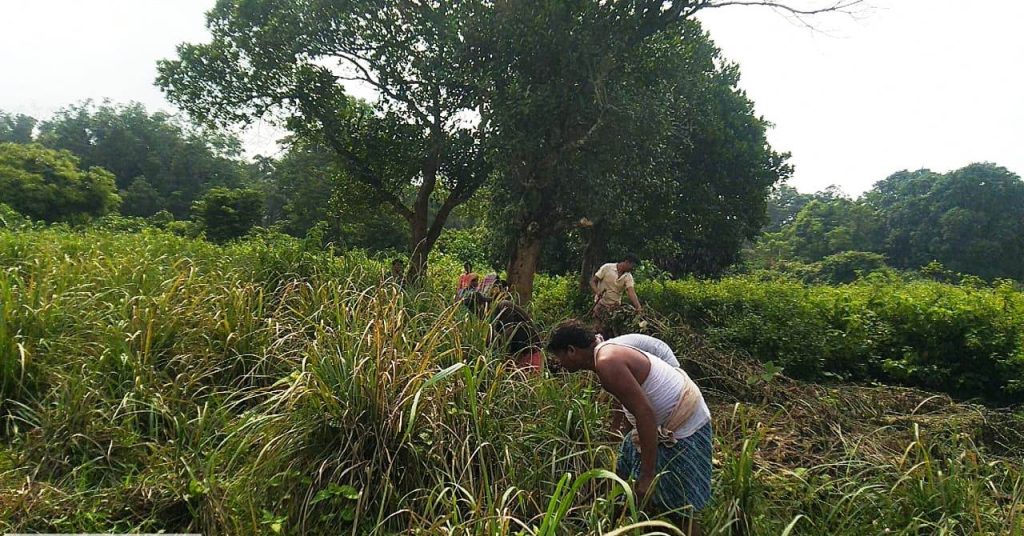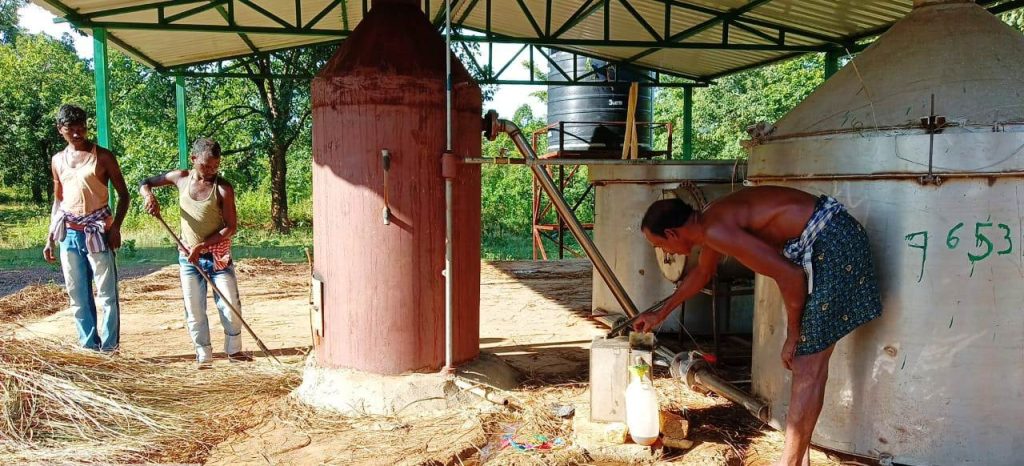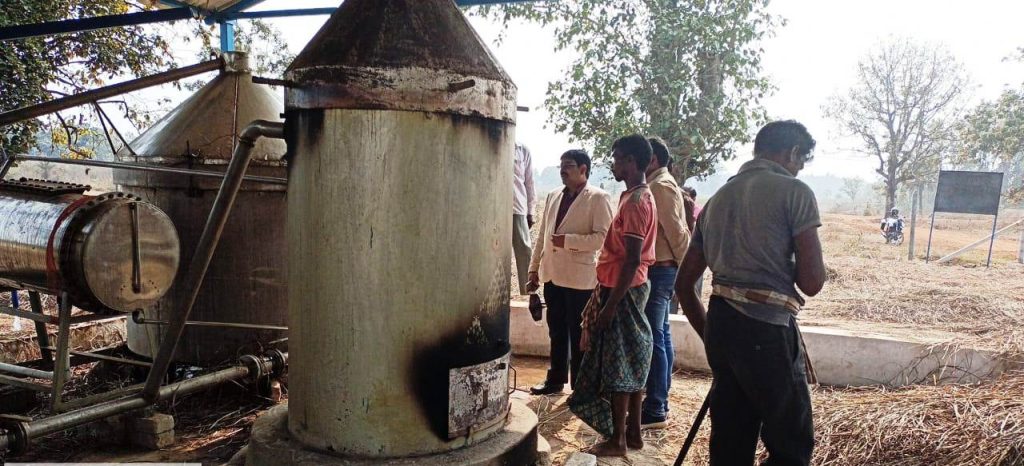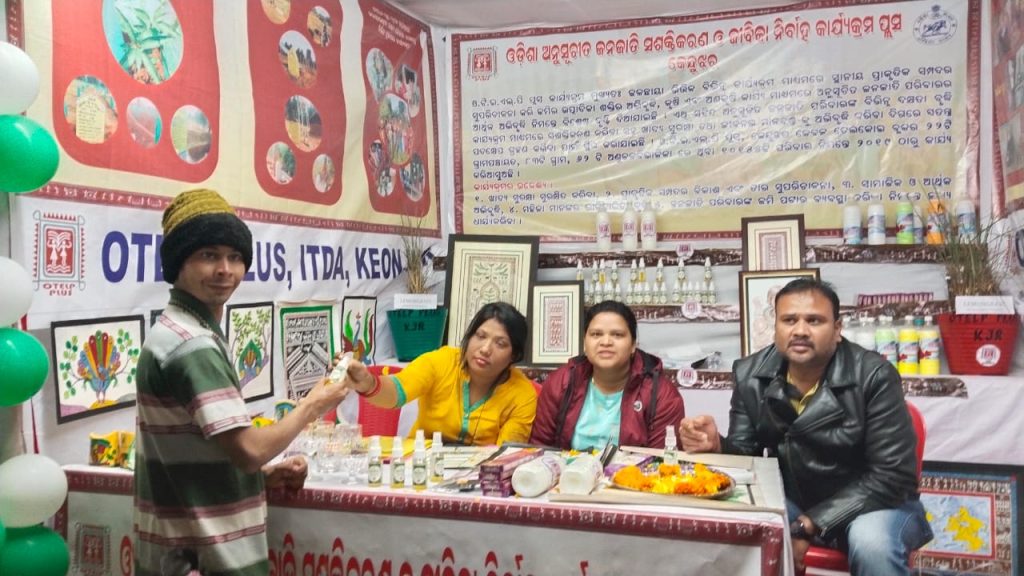
Lemongrass spreads scent of success in Odisha’s tribal land
The lemongrass fields sway with the promises of a brighter future for the tribal farmers of Odisha’s Keonjhar, offering a sustainable pathway to economic growth in the region.

The lemongrass fields sway with the promises of a brighter future for the tribal farmers of Odisha’s Keonjhar, offering a sustainable pathway to economic growth in the region.
Tankadhara Pradhan basks in the joy of a newfound bounty in Tangiri, a village nestled within the rustic realms of Keonjhar district in Odisha. His two-acre land, once ravaged by wild elephants, has blossomed into a thriving lemongrass haven, rewarding him with a sum of Rs 20,000 this year.
Pradhan, a 36-year-old farmer belonging to the Kondh tribe, turned to lemongrass cultivation in 2020-21 after elephant attacks left his paddy fields vacant a decade ago.
“I harvest only twice a year. Still, the oil extracted from my lemongrass fetches me a good income. If I take good care of my crop and harvest it every three months, my earnings can shoot up to Rs 40,000, matching earnings from paddy and vegetables from my other eight acres,” said a jubilant Pradhan.
He credits the success of lemongrass cultivation to the efforts of the Integrated Tribal Development Agency (ITDA) and Odisha Tribal Empowerment and Livelihood Programme (OTELP) Plus, in collaboration with the NGO Gopabandhu Development Society (GDS) in Keonjhar.

The private firm Phytobiox Manufacturers, based in Bhubaneswar, also played a vital role in training Pradhan and 255 other tribal farmers from six villages, including Tangiri, in lemongrass cultivation and oil extraction.
“We signed an agreement with farmers to purchase oil at a minimum support price of Rs 1,000 a litre, as oil rates fluctuate frequently. However, the price is adjusted when it increases,” said Phytobiox director Santosh Kumar, highlighting the support provided to the farmers.
The project’s scope later expanded to include seven more villages, with NGOs Keonjhar Integrated Rural Development and Training Institute (KIRDTI) and Women’s Organisation for Socio-Cultural Awareness (WOSCA) in Keonjhar joining the efforts. In total, 27 farmers in two villages grow lemongrass in 20 hectares under KIRDTI, while WOSCA supports 100 farmers cultivating lemongrass in 62 hectares.
The project was partially funded by the Mahatma Gandhi National Rural Employment Guarantee Act (MNREGA), which provided Rs 1.63 crore to meet the costs. Additionally, oil extracting machines were installed in Tangiri and Kalapokhari villages, said OTELP Plus programme officer Debendra Rout.

Two village development committees, comprising 15 members each and headed by a community research person, oversee the operation and maintenance of the machines. They keep records of grass pressed and oil extracted, ensuring fair distribution among beneficiaries.
Also Read | Agri-entrepreneurship: Inspiring family story in a cup of lemongrass tea
The whole set-up fetches over Rs 15,000 for each farmer, according to KIRDTI programme coordinator Ranjan Pattanayak.
“One quintal of lemongrass yields nearly 10 litres of oil,” said Kalapokhari VDC’s CRP Kailash Kisan, who grows lemongrass on his 1.5-acre parcel.
The lemongrass oil, in high demand due to its anti-inflammatory, antifungal and antioxidant properties, finds applications in pharmaceutical, cosmetic and disinfectant units.
Beneficiaries have been provided with lemongrass of the Krishna variety, recommended by the National Horticulture Board, Gurugram, and well-suited to Odisha’s tropical savanna climate.

“One can earn more if the proper process is followed. After harvest, lemongrass should be kept in the open for a day before it is pressed for oil. When it retains mild moisture, it yields more oil during extraction. Too much or too little moisture content can decrease oil yield,” said Balwant Kisan, a farmer from Kalapokhori.
Yet, like every tale of triumph, challenges emerged along the way. Some farmers, tempted by fleeting gains, clandestinely sold their lemongrass oil at an inflated rate to a Kolkata party. The wrath of Phytobiox was swift, leading to a momentary stalemate. In the meantime, oil rates slumped and the Kolkata party backtracked.
Undaunted, the community rallied and found creative ways to showcase their unsold oil at the Gonasika-Keonjhar Mahotsav, a grand event where it caught the eye of eager buyers.
Through perseverance and negotiation, the grievances were appeased, and Phytobiox returned to the fold, paving the way for dreams of exporting their lemongrass oil to distant lands.

“Now we plan to include more villages to boost oil production for export,” said ITDA project administrator Tapan Kumar Naik.
The spirit of cooperation and innovation has breathed life into this tribal landscape. The lemongrass, an anathema to elephants, has now become an emblem of resilience and triumph in the hearts of the tribespeople. The fragrance of success now wafts through the air, stirring aspirations and knitting the tribal community together.
The lead image at the top shows farmers tending to the lemongrass growing in their fields. (Photo arranged by Niroj Ranjan Misra)
Niroj Ranjan Misra is a freelance writer based in Cuttack, Odisha.